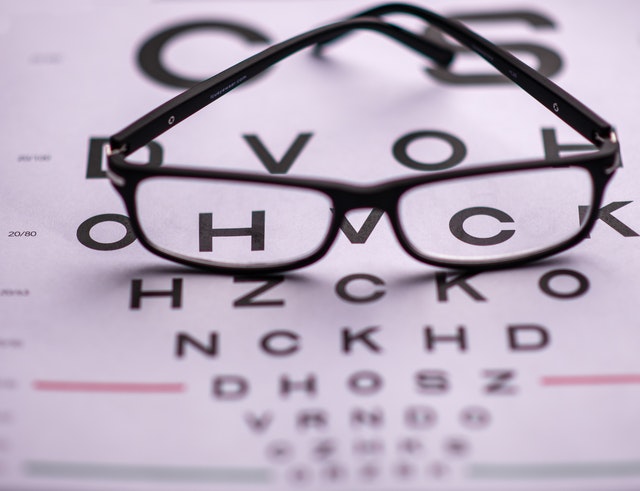The eyes are indeed one of the most important organs of the body. However, millions of people experience eye problems each year that even result in loss of vision. Macular denegation, cataract, diabetic retinopathy, and glaucoma are some of the most common eye diseases. In this article, you will learn about three tips to better protect your eyes.
Starting from children to teenagers, adults and elderly people today spend more time in front of the screen which might be a vital cause of weak eyesight. Nevertheless, we can protect our vision by following some tips. For example, practicing some good habits and a healthy lifestyle not only protects your eyesight but also saves you a lot of money.
Seeing a doctor at regular intervals is also necessary, even if you feel no problem at all! Along with maintaining good habits, you should avoid your bad habits for having a clear, full vision throughout your lifetime.
1. Healthy Habits to Protect Your Eyes
Eating Right
It is often said that “You are, what you eat.” Therefore, when we talk about any health issues, the topic of food comes first. Eating right is one of the most important factors for maintaining good eyesight. Carrots and dark-green vegetables are full of antioxidants that block the high-energy blue light that harms retinal cells.
Also, they provide protection from the progression of age-related macular degeneration. Colorful vegetables and vegetables enriched in beta-carotene, fruits, eggs, omega-3 fatty acids, different types of fish, and eggs are essential sources of vitamin A that are needed for good vision.
Right Amount of Sleep
Inadequate amounts of sleep lead to deteriorated eyesight. When you sleep, the fluid in your eyes circulates and hydrates. This is the only way to refresh your eyes for the next day. Less than five hours of sleep can make your eyes sensitive to light. Also you can experience blurred vision and involuntary twitches.
You shouldn’t forget that your eyes need a break! Give rest to your eyes at minute intervals if you work in front of a screen. It’s really helpful if you can get into the habit of blinking more often. It spreads a fresh layer of tears over the eye surface that helps keep good vision.
Practicing Good Hygiene
Most women ignore eye make-up removal practices, which leads to morning irritation. Hence, you should remove all traces of eye makeup before going to bed to prevent irritation or allergic reaction. Make-up clogs your oil glands which prevent you from producing more oil. You can use diluted baby shampoo, washcloth, and lukewarm water to remove make-up.
Also, the breakdown of preservatives in cosmetic products allows bacteria growth leading to irritation. You can get infections from dirty contact lenses too! So, every time you use lenses, make sure they are clean and dry.
Exercise Helps to Protect Your Eyes
It might sound weird but exercise can do wonders for maintaining good vision. You can prevent age-related cataracts by exercising regularly. It also reduces your risk of getting glaucoma. And, of course, you already know that exercise decreases the risk of developing type-2 diabetes and heart disease, which all lead to cataracts.
Protection from the Sun
The UV rays of the sun can cause serious harm to the eyes including long-term damage if you leave them unprotected. Not only on sunny days but you should also be equally careful on overcast days. You should never forget to wear quality sunglasses with UV protection and never stare into the sun directly.
2. Avoid Bad Habits to Protect Your Eyes
Quit Smoking
Smoking damages optic nerves that result in cataracts and macular degeneration. Smoking increases your risk of getting cataracts 3x more than a non-smoker. Cigarettes contain thousands of toxins that cause oxidative stress preventing proper blood flow.
Also, irritating smoke damages tear film and increases the risk of dry eye. Therefore, if you’re a smoker, it’s high time for you to leave smoking for your greater interest!
Stay Hydrated
If you drink less water and more soda, then this is bad news for your eyes! Dehydration leads to less tear production and less tear production means, blurred vision, eye redness, sensitivity to light, and so on. You can protect your eyes just by drinking plenty of water which might be the cheapest way to protect them.
3. Visiting the Doctor to Protect Your Eyes
A routine-based eye examination is necessary for everyone including children. Checkups help in finding diseases with no symptoms early. Plus, early spotting means easier treatment. You can see two types of doctors according to your needs: an ophthalmologist or an optometrist.
Optometrists can diagnose disease and provide general eye care but do not perform surgery. On the other hand, ophthalmologists perform surgeries to treat eye disease as well as provide general care. For glaucoma, you’ll need to check eye pressure and take an optic nerve test. You should talk about personal and family medical history for a complete eye examination.
Extra Tip!
Well-moisturized eyes help in clear vision and healthy eyesight. Some medical conditions trigger dry eyes leading to burning sensations. Artificial tears aid in keeping the eyes moist and comfortable. Apart from using artificial tears or gel, drinking water can help as well.













